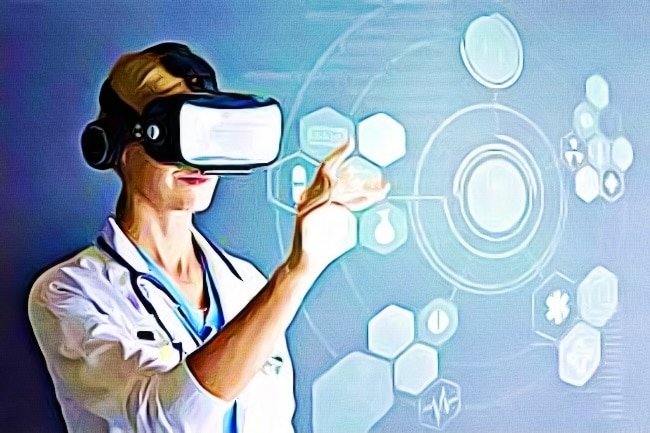The Evolution of Mental Health Treatment
Mental health care has evolved significantly over the years, integrating new technologies to enhance treatment outcomes. One of the most exciting developments in this field is the use of Virtual Reality (VR). Once primarily associated with gaming and entertainment, VR is now being harnessed to provide innovative mental health treatments. This technology offers a unique, immersive, and interactive approach to therapy, making it a powerful tool for addressing various mental health issues.
How VR Therapy Works
VR therapy uses computer-generated environments to create immersive, simulated experiences. These environments can be tailored to meet the specific needs of each patient, allowing for highly personalized treatment. Patients wear a VR headset that transports them into these virtual worlds, where they can engage in therapeutic activities designed to help them manage their mental health conditions.
Benefits of VR Therapy
1. Exposure Therapy in a Safe Setting
One of the primary applications of VR in mental health is exposure therapy. This treatment is particularly effective for conditions such as PTSD, phobias, and anxiety disorders. VR allows patients to confront and gradually desensitize themselves to their fears in a controlled, safe environment. For example, a patient with a fear of flying can experience a simulated flight, helping them to reduce their anxiety over time.
2. Enhanced Mindfulness and Relaxation
VR can create serene and calming environments that promote mindfulness and relaxation. Patients can practice mindfulness techniques in these virtual settings, which can help reduce stress, anxiety, and depression. The immersive nature of VR makes these practices more engaging and effective, as patients can fully immerse themselves in the experience.
3. Cognitive Behavioral Therapy (CBT) Enhancement
VR can enhance traditional Cognitive Behavioral Therapy (CBT) by providing interactive scenarios that help patients practice coping strategies and problem-solving skills. For instance, a VR program might simulate social situations to help patients with social anxiety develop and refine their social skills in a safe and controlled manner.
4. Pain Management
Chronic pain is often associated with psychological factors, and VR therapy has shown promise in pain management. By providing immersive distraction and relaxation experiences, VR can help patients reduce their perception of pain and improve their overall quality of life.
5. Accessibility and Convenience
VR therapy can be delivered in various settings, including clinics, hospitals, and even at home. This flexibility makes mental health care more accessible, especially for individuals who may have difficulty attending in-person therapy sessions. The convenience of VR therapy also encourages consistent engagement, which is crucial for effective treatment.

Real-World Applications and Success Stories
Several studies and real-world applications have demonstrated the effectiveness of VR therapy. For example, the U.S. Department of Veterans Affairs has successfully used VR therapy to treat veterans with PTSD. In another instance, VR programs designed to help patients with social anxiety have shown significant improvements in patients’ ability to manage their anxiety in real-life social situations.
The Future of VR in Mental Health
The potential of VR in mental health care is immense and continues to grow as technology advances. Future developments may include more sophisticated simulations, improved accessibility, and integration with other therapeutic modalities. As VR technology becomes more widespread and affordable, it is likely to become a standard tool in mental health care, offering new hope and effective treatments for millions of people.
Conclusion
Virtual Reality is revolutionizing the field of mental health care, offering innovative solutions for a wide range of conditions. Its ability to provide immersive, personalized, and accessible therapy makes it a powerful tool in the ongoing effort to improve mental health outcomes. As we continue to explore and refine VR technology, we can look forward to a future where mental health care is more effective, engaging, and available to those who need it most.
Embracing VR therapy represents a significant step forward in our understanding and treatment of mental health, opening new doors to healing and well-being.




